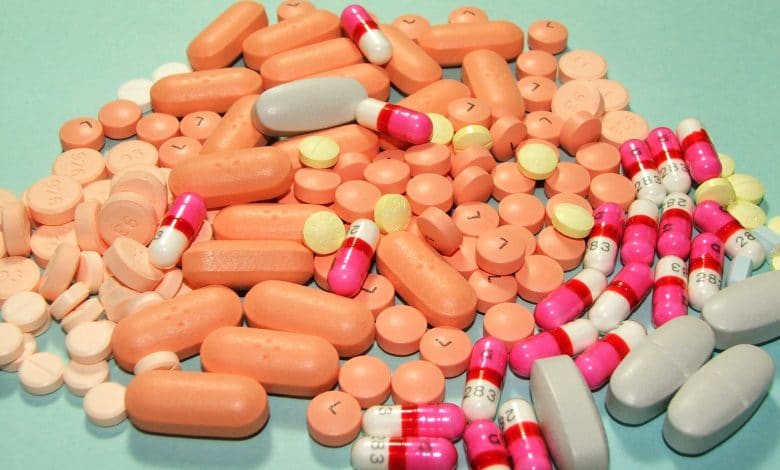
Hospital worker: just compensate with an agreement, act on the territory
Hta, Cicchetti: a control room on drugs and medical devices
 Health technology assessment experts - the method that evaluates the impact of technologies on society in terms of effects on health, costs, development - ask to be able to have their say in the Control Room set up by the Health Pact to evaluate the effectiveness of the new drugs and to reclassify i medical devices.
Health technology assessment experts - the method that evaluates the impact of technologies on society in terms of effects on health, costs, development - ask to be able to have their say in the Control Room set up by the Health Pact to evaluate the effectiveness of the new drugs and to reclassify i medical devices.
They do so in a position paper of their scientific society, the SIHTA, which brings together 200 members of various backgrounds: clinical engineers, public and private health managers, health and drug economists, hospital pharmacists, heads of pharmaceutical departments of ministries and regions, Aifa and Agenas operators.
In articles 26 and 27, the government-regions pact establishes a control room by co-opting the Aifa drug agency and the Agenas health services agency to evaluate biomedical and pharmaceutical technologies: Italy is faced with the task of classifying medical devices in homogeneous categories and to organize their effectiveness tests in the regions; while on drugs it must evaluate the comparative effectiveness by producing "reliable, transparent and transferable" data for AIFA.
«We are not in opposition to Aifa and Agenas, far from it. Our company does not propose itself as an HTA assessment production body, but intends to put the experience of its members at the service of the institutions: today in Italy we have professionals and research centers that can help produce important data", says the newly elected president Sihta Americo Cicchetti. And he explains:
«While AIFA defines both entry into the essential levels of assistance and prices for drugs, there is no institutionalized path to govern the introduction of devices and procedures into clinical practice. For example, we don't have a one-size-fits-all approach to ensuring appropriate use of the robot surgeon or to tell if we are spending too much on a device, or to judge the performance of a device.
Nor has a process been envisaged so far to evaluate which combination of new anti-hepatitis C drugs should be ensured for citizens, being able to have - in the short term - 5-6 new principles. For such a task, the Pact identifies the coordination tool in the control room, which we strongly support as a starting point», observes Cicchetti.
«But in order to optimize efforts, in our opinion it is necessary not to neglect the skills of professionals who do this job every day. And it is also necessary to foster dialogue between the nascent national HTA program and the Health Technology Assessment Network (HTA-N) which represents the 28 EU states: the advanced experience of many European countries can and must come to our aid, and urges us , as soon as possible, the launch of the Control Room precisely to create a structural link between the national and European level, avoid duplication and speed up the evaluation work".
Mauro Miserendino
Saturday, 04 October 2014 – Doctor33
Hospital worker: just compensate with an agreement, act on the territory
An underestimation of hospital expenditure, which cannot be included in a monthly monitoring, but is often calculated in the final balance. With the consequence that then it is the contracted party who pays for it. The case comes from Piedmont and was highlighted by Maximum Mana, president of regional Federfarma, but it could also apply to other regions.
 It all started with a statement published on the Region's website in which the councilor for health Antonio Saitta takes stock of pharmaceutical expenditure with forecasts of exceeding the ceiling. With data that, according to Mana, don't add up: "The agreements made at the national level are different," he explains.
It all started with a statement published on the Region's website in which the councilor for health Antonio Saitta takes stock of pharmaceutical expenditure with forecasts of exceeding the ceiling. With data that, according to Mana, don't add up: "The agreements made at the national level are different," he explains.
"In the meantime, the territorial is higher than what is indicated by the Region and there are 80 million dancing". Therefore, not the total of 827.8 but «907 equal to 11.35% of the national health fund». Ditto on the hospital, which has a lower value: «actually 280 million ceiling against the limit of 390 indicated by the Region. And already now the estimates of the councilorship say that the hospital worker has reached 415 million ». Why these discrepancies?
«The wishes of the Region could be to reach a certain total value of pharmaceutical expenditure, so that the deviation from the ceiling appears smaller - at the moment the figure is around 1200 million, against the 1187 foreseen by the overall ceiling. And the mechanism is to consider hospital and subsidized expenses as communicated vessels ».
With a consequence: «I would hope not, I would hope that, as often happens, it is only about announcements, but I cannot exclude that meetings with the Region may arise from here in which further sacrifices are asked for on the agreement. And I can already say that the territory is no longer capable of withstanding interventions».
Among the problems at the basis of this situation is the difficulty of monitoring hospital expenditure, which would also allow for more correct planning: «I believe that one point stated by the commissioner is precisely that of having realized that the data are underestimated and that there would be a need to frame hospital expenses on a monthly basis. While often the true entity of this item comes from the final balance».
That said, "the problem of hospital expenditure is in any case structural: acute patients must flow to the hospital while chronic patients must be treated in the area, between first-level structures and the patient's home", with a more important role also for pharmacies.
Frances Giani





